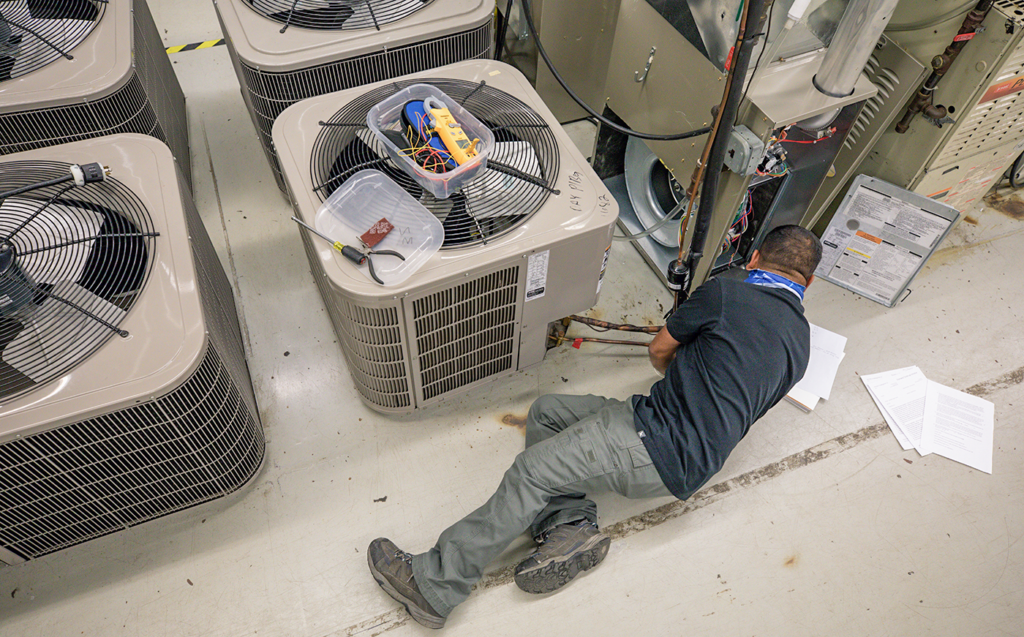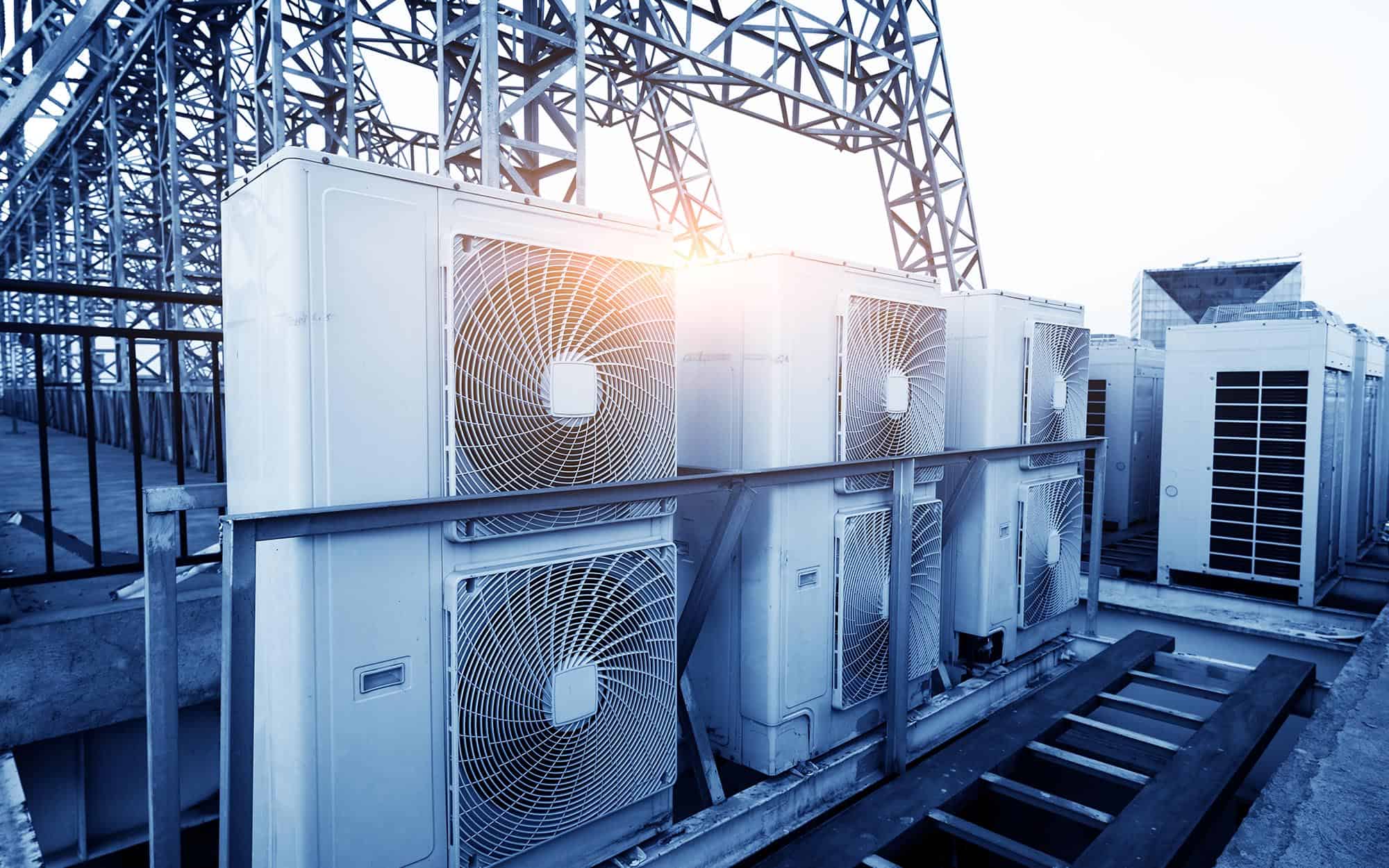Your Guide to Selecting the Right HVAC System for Your Demands
Choosing a proper A/c system is an essential choice that can substantially impact comfort and power effectiveness in your home. Additionally, understanding the various types of systems available and their power scores can help lead your option.
Understanding HVAC System Kind
When choosing a HVAC system, it is necessary to recognize the various kinds offered to meet your certain needs. The key classifications of HVAC systems consist of air conditioning systems, ductless mini-split systems, warmth pumps, and heating system systems.
Central air conditioning systems are created to cool several rooms utilizing ductwork to distribute conditioned air. They are suitable for larger homes needing consistent temperature control. Ductless mini-split systems, on the various other hand, offer adaptability and effectiveness, as they permit zoning capacities, allowing specific room temperature level law without the requirement for ductwork.
Warmth pumps operate by transferring warmth instead of producing it, making them an energy-efficient alternative for both heating and air conditioning. They are particularly effective in modest environments. Conversely, heating system systems make use of combustion to create warmth, utilizing either electrical power, oil, or gas. They are preferred in cooler regions where heating demands are considerable.
Each system has distinctive benefits and factors to consider, consisting of installment needs, upkeep, and total expenses. Comprehending these types will certainly assist property owners make notified decisions based on their particular needs, climate, and budget constraints, inevitably making certain optimum convenience and performance.
Reviewing Power Effectiveness
Energy performance is a critical element in the option of a Cooling and heating system, as it directly influences both energy expenses and environmental sustainability. The Seasonal Power Efficiency Ratio (SEER) and the Heating Seasonal Performance Factor (HSPF) are crucial indicators for air conditioning systems, representing their efficiency over a normal cooling and heating season, respectively.
Additionally, look for systems that have actually earned the ENERGY STAR tag. This certification indicates that the tools meets strict power performance guidelines established by the united state Epa. Think about the system's variable-speed modern technology, which permits more efficient procedure by adjusting the output to match demand, additionally improving power cost savings.
Additionally, proper insulation and air duct securing can substantially affect the system's total efficiency. In summary, picking an energy-efficient cooling and heating system not just reduces your energy bills but additionally adds to a much more sustainable environment, making it a crucial factor to consider in your getting procedure.
Assessing System Size
Choosing the proper dimension for a cooling and heating system is critical to ensuring ideal efficiency and effectiveness. A small system may have a hard time to keep wanted temperature levels, leading to enhanced wear and tear, greater energy intake, and decreased convenience. On the other hand, a large system can result in fast cycling, which not only triggers inadequacies but likewise impacts moisture control and air quality.
To examine the ideal sizing, it is important to carry out a load more helpful hints estimation, which considers factors such as the square footage of the space, insulation degrees, window dimensions, and local environment problems - furnace repair. This calculation assists Continue identify the British Thermal Systems (BTU) needed for heating & cooling. Furthermore, it is vital to make up specific demands, such as the variety of occupants and the presence of heat-generating home appliances

Setup Expenses and Budget
A detailed understanding of installment expenses is vital for businesses and home owners taking into consideration a brand-new HVAC system. The overall expenditure of installment can vary commonly based upon several variables, consisting of the kind of system, the intricacy of installation, and the place of the home. On average, installment prices can vary from $3,000 to $10,000, relying on the system's dimension and performance.
When budgeting for an a/c system, it is crucial to consider not only the first installation prices yet likewise any extra costs that may develop, such as ductwork adjustments, electric upgrades, or licenses. In addition, it is recommended to get multiple quotes from licensed heating and cooling professionals to make certain competitive rates.
Homeowners should likewise consider the prospective long-term savings linked with energy-efficient systems. While the in advance prices might be higher, energy-efficient versions can result in substantial cost savings on utility expenses gradually.

Maintenance and Longevity Considerations

Appropriate maintenance consists of regular assessments, filter replacements, and cleaning of coils and air ducts (furnace repair). Neglecting these tasks can lead to reduced effectiveness, raised power costs, and premature system failure. Homeowners must likewise take into consideration the accessibility of solution contracts, which commonly offer scheduled upkeep and concern solution, guaranteeing that the system continues to be in peak condition
Durability varies by system type; why not check here for instance, properly maintained air conditioning systems can last 15 to 20 years, while heatpump might have a lifespan of 10 to 15 years. Selecting a system with a strong online reputation for integrity, along with spending in regular upkeep, can dramatically boost the system's resilience. Furthermore, going with higher-efficiency designs may lead to lasting cost savings on power expenses, balancing the initial financial investment with time.
Conclusion
In conclusion, picking a suitable Heating and cooling system requires cautious consideration of different elements, including system types, power effectiveness, and dimension. Inevitably, a well-informed choice will certainly improve comfort and effectiveness in residential environments while maximizing power cost savings.
Selecting an appropriate HVAC system is an essential choice that can substantially influence convenience and energy performance in your home.Power efficiency is an important variable in the option of a Heating and cooling system, as it straight affects both energy expenses and environmental sustainability. The Seasonal Energy Efficiency Ratio (SEER) and the Heating Seasonal Performance Aspect (HSPF) are vital indicators for air conditioning systems, representing their effectiveness over a typical cooling and heating period, respectively. Choosing a system with a strong online reputation for reliability, along with spending in normal maintenance, can considerably enhance the system's resilience.In conclusion, choosing a suitable A/c system demands careful consideration of various elements, consisting of system kinds, power effectiveness, and size.